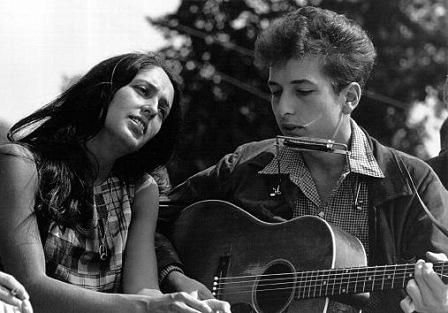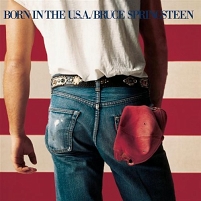Erstellt am: 12. 2. 2010 - 15:47 Uhr
What makes a great protest song?
by John Cummins
John Cummins works as a journalist for FM4's Reality Check
Ahead of today's Protestsongcontest, a Reality Check on the history of the protest song and what makes a classic.
When we think of protest songs, we almost certainly think of the 1960s, when musicians like Bob Dylan and Joan Baez became the voice of a generation discontented with the Vietnam War, the lack of civil rights and the hypocrisy of American society.

unknown
But protest songs have a much longer and richer history, stretching back hundreds of years and across continents and cultures. Many people cite the final movement of Beethoven’s 9th symphony as an early protest song, with its revolutionary call for universal brotherhood “Alle Menschen werden Brüder.”
In fact Robert Bell from Loyola University in the US says protest songs exist in every culture where people have a need to connect with one another and promote a particular cause.
So what makes a classic protest song? Robert Bell says the best protest songs, like Bob Dylan’s “Blowin’ in the Wind”, transcend their time and are relevant to people across generations and fighting for a range of causes.
The lyrics of a protest song are, of course, one of the most important elements, even though the lyrics of a protest song are often disregarded or misunderstood.
Listen to the lyrics

Sony Music
Take, for example, Bruce Springsteen’s classic rock anthem, “Born in the USA.” A generation of sweaty American teenagers belted out the chorus to that song, gripped with a patriotic fervor for the greatness of their country. In fact, if they’d bothered to listen to the lyrics, they would have realized that Springsteen was being critical of the US and, in particular, its treatment of Vietnam War veterans.
Paradoxically, Robert Bell says that despite the current popularity of protest songs in the US, radio stations are becoming less inclined to play this type of music for commercial reasons. In Bell’s own words: “It’s a lot easier to someone a soft drink if they’re singing about love, than if they’re upset about the state of affairs in the country.”
You can hear all he had to say here:
FM4 has no such qualms and you can hear the best songs from the "Protestsongcontest" on Friday February 12 from 7 pm on the radio and you can watch the sold-out show via livestream.

